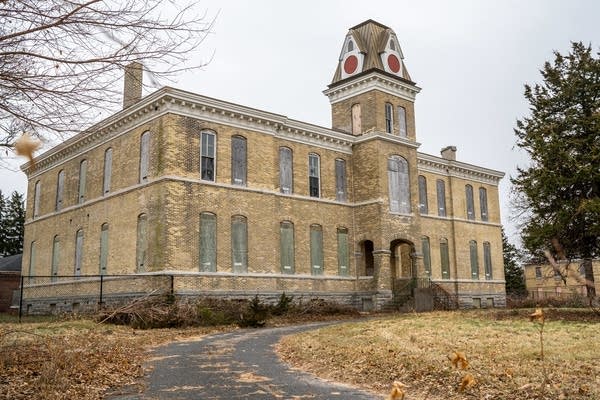DNR signs deal to transform Fort Snelling buildings into homes

Go Deeper.
Create an account or log in to save stories.
Like this?
Thanks for liking this story! We have added it to a list of your favorite stories.
It was once the military capital of the Dakotas, and George Armstrong Custer's superior officer commanded there for a time. It served the armed forces from the Spanish American War until after the dropping of the atomic bomb.
But soon Fort Snelling's Upper Post will be home for as many as 180 families, tucked into the corner of Highway 62 and Highway 5, just outside the fence at the Twin Cities airport.
The Minnesota Department of Natural Resources, which has had authority over the 41-acre site for decades, signed a development deal Wednesday with Plymouth-based Dominium to remake the Upper Post. It's where 26 military buildings are still standing, including a 19-century administration building and barracks where as many as 300 troops were billeted at one time. It overlooks the nearby Fort Snelling historical site and Fort Snelling State Park and was named one of the most endangered historic sites in America in 2006.

"We've been working on this site since the 1970s, to try and get some redevelopment money here," said DNR commissioner Tom Landwehr, at a brief signing ceremony on the porch of one abandoned building. "When you look at the state of these buildings, you'll understand this is not a project to be taken lightly, and the state of Minnesota, given our limited bonding dollars was never really put the money in to refurbish these."
Turn Up Your Support
MPR News helps you turn down the noise and build shared understanding. Turn up your support for this public resource and keep trusted journalism accessible to all.
The work will be expensive, at a cost of nearly $600,000 per unit for the whole development, including landscaping and utility work.
The $100 million project will depend on historic and low-income housing tax credits to make the project financially feasible.
"The historic credits were designed to help save old buildings," said Owen Metz, a vice president and project partner with Dominimum. "They're expensive. They were done because the private sector couldn't save them on its own, given a return. So they do help offset those costs, and cover the high construction costs it takes to rehab old buildings like this."

Rents will range from around $1,050 to $1,500 for two-, three- and four-bedroom apartments, Metz said.
Dominium has not disclosed its developer fee.
The project was the source of political debate at the Capitol, where lawmakers passed a last-minute bonding measure that has the Minnesota Housing Finance Authority using $29 million of its bonding authority to help finance the rehab work.
Metz said the project will be called the Upper Post Flats. Dominium officials said they hope to start construction on renovating the historic buildings next year, and work several years on the project.




